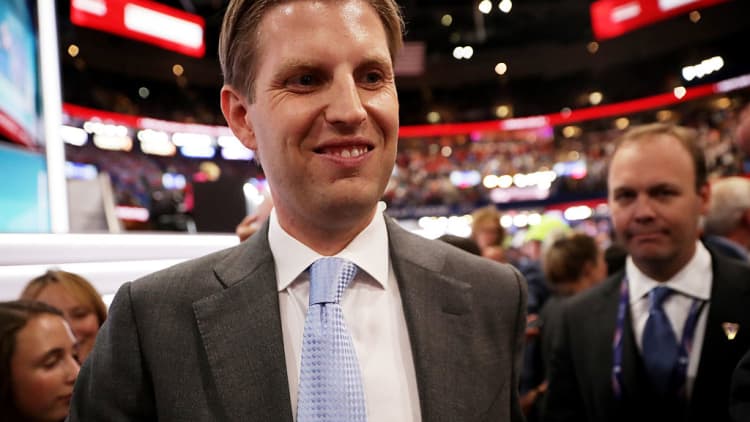Republican presidential nominee Donald Trump backed away farther from his hardline stance on deporting millions of illegal immigrants, saying in remarks broadcast on Wednesday he would be willing to work with those who have followed U.S. laws while living in the country.
Trump's comments came in the second part of an interview conducted on Tuesday with Fox News anchor Sean Hannity. They signaled a further softening in his immigration position as he girds for a battle against Democrat Hillary Clinton in the Nov. 8 election and faces pressure to bolster support among moderate voters and minority groups.
Trump, who defeated 16 rivals for the Republican presidential nomination in part based on his opposition to illegal immigrants, said he would not permit American citizenship for the undocumented population and would expel lawbreakers.
To qualify to remain in the United States, Trump said, illegal immigrants would have to pay back taxes.
"No citizenship. Let me go a step further - they'll pay back taxes, they have to pay taxes, there's no amnesty, as such, there's no amnesty, but we work with them," Trump said.
"But when I go through and I meet thousands and thousands of people on this subject, and I've had very strong people come up to me ... and they've said: 'Mr. Trump, I love you, but to take a person who's been here for 15 or 20 years and throw them and their family out, it's so tough, Mr. Trump,'" Trump said. "It's a very hard thing."
Trump said he would outline his position soon.
"Well, I'm going to announce something over the next two weeks, but it's going to be a very firm policy," Trump told WPEC, a CBS affiliate in West Palm Beach, Florida.
Trump's new position seemed to resemble in some respects the failed 2007 reform push by former Republican President George W. Bush. That effort offered a way to bring millions "out of the shadows" without amnesty and would have required illegal immigrants to pay a fine and take other steps to gain legal status.

Trump's latest comments came as Nigel Farage, an anti-immigration politician who was part of Britain's successful campaign to leave the European Union, planned to address Trump's rally in Jackson, Mississippi, on Wednesday night.
Trump has retained much of his immigration agenda. He still wants to build a wall along the U.S. southern border with Mexico but he has emphasized in recent days a need to deal most urgently with illegal immigrants who commit crimes and also those who might be displacing African-American and Hispanic workers.
At a rally earlier in Tampa, Florida, Trump did not talk about deporting as many as 11 million illegal immigrants as he has in the past, instead saying he would aim enforcement efforts at people who are committing crimes such as overstaying their visas.
"Hillary Clinton wants a totally open border so people can just pour in," Trump said. "We are going to enforce our laws, remove people who overstay their visas, dismantle the gangs and cartels, and protect jobs and benefits for hardworking American citizens."
Reaching out to minorities
Trump trails Clinton in national public opinion polls as well as in many battleground states where the election will be decided. After a campaign shake-up last week, he has made more urgent attempts to appeal to moderate voters and minority groups who have been disenchanted by his bellicose rhetoric.
As part of an outreach to minority voters, who opinion polls show favoring his opponent, Trump plans to visit some African-American communities, a departure from his reliance on white voters. One such stop is expected to be in September in Detroit.
One adviser, retired neurosurgeon Ben Carson, an African-American who ran against Trump for the 2016 Republican presidential nomination, told MSNBC he would accompany Trump.
"There's no question that he will be in the communities. He will be talking to African-American leaders around the country in different cities to find out what they believe is important, and what they think has worked," Carson said.
Trump argues that many minority groups have suffered under Democratic policies, particularly in inner cities. He vowed to make cities safer so that "when you walk down your street... you're not going to be shot, your child is not going to be shot."

